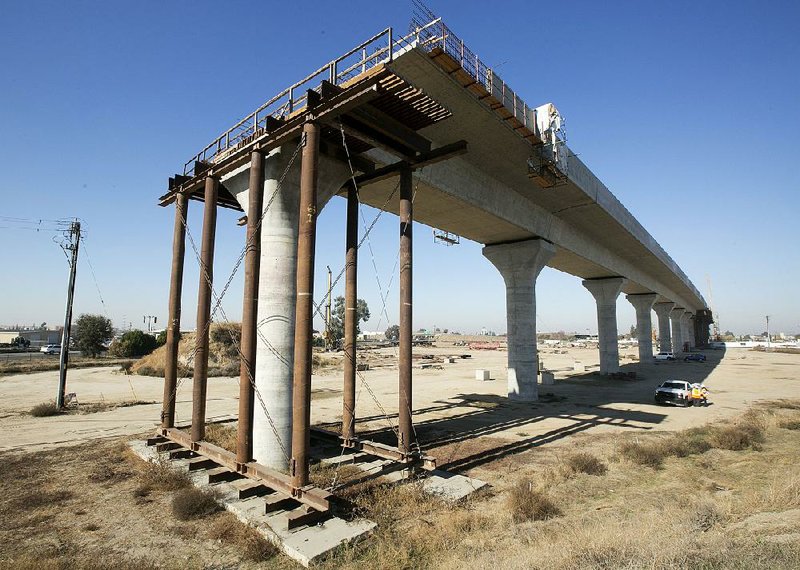President Donald Trump's administration said it will cancel more than $900 million in federal grants earmarked for an ambitious California high-speed rail project after the state's Democratic governor said he now plans to focus on completing a single segment in an interior region.
In addition, the U.S. Transportation Department said in a statement Tuesday that it was exploring legal options to recoup $2.5 billion in federal funds already granted to the project by the Federal Railroad Administration.
Initially conceived as connecting San Francisco and Los Angeles with a high-speed train that would slash travel times and transform the state's economy, the project has been beset by cost overruns and delays causing its estimated price to balloon to $77 billion. Gov. Gavin Newsom, who took office in January, said last week that the rail as planned "would cost too much and take too long" and that he would instead finish roughly 170 miles of track already under construction in the state's Central Valley. The state agency running the project estimates that cost at $17.5 billion.
The administration's move comes as tensions escalate between it and Democratic leaders of the most-populous U.S. state. Talks between California and federal officials on vehicle emissions and fuel economy standards have broken down without a deal, three people familiar with the matter said Tuesday. California on Monday led a group of more than a dozen states in a lawsuit to block Trump from diverting funds from the federal budget to pay for his promised border wall.
"This is clear political retribution by President Trump, and we won't sit idly by," Newsom said in a statement Tuesday. "This is California's money, and we are going to fight for it."
Trump has lambasted California's high-speed rail project, in the works for more than a decade, as wasteful and called for the state to return federal funding.
"A different deal and record cost overruns. Send the Federal Government back the Billions of Dollars WASTED!" Trump said in a tweet Wednesday morning.
House Minority Leader Kevin McCarthy also criticized his home state's management of the project, citing rising costs and a lack of transparency.
"It is time is to move on from the broken high-speed rail project and redirect our efforts to infrastructure projects that work for Californians," he said Tuesday in a statement.
Newsom said the state is properly using the money to finish the segment in the Central Valley, a mostly rural agricultural region. Newsom said preliminary work on the entire system would continue and that he would seek more federal and private funding. "The train is leaving the station -- better get on board!" he tweeted Feb. 13.
In a letter to California officials released Tuesday by the Department of Transportation, Ronald Batory, head of the railroad administration, said the state authority responsible for the rail project failed to comply with the terms of the $929.6 million grant in federal funds.
Congress nearly a decade ago approved those funds. The state has not started spending it. But it already has spent the extra $2.5 billion that Trump now wants back.
The grant agreement between California and the federal government, signed in 2010, outlines several scenarios in which the federal government could take the money back. It can take the money back, for example, if the grantee fails to make "adequate progress" or "fails to complete the project or one of its tasks" or if the state doesn't meet its matching-fund requirements.
Information for this article was contributed by Ryan Beene and Romy Varghese of Bloomberg News and by Kathleen Ronayne of The Associated Press.
Business on 02/21/2019

